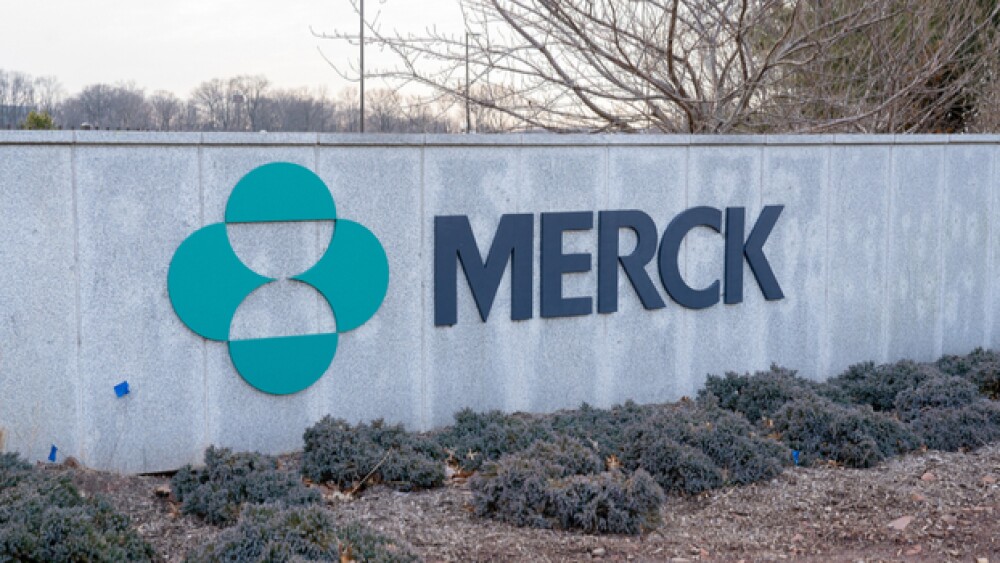FDA had approved its expanded label for Keytruda. Specifically, the anti-PD-1 therapy’s expanded label was approved for the treatment of relapsed or refractory cHL.
Keytruda is leading the way for more effectual cHL treatment. (JHVEPhoto/Shutterstock)
Merck, which is known as MSD outside of the U.S. and Canada, announced yesterday that the U.S. Food and Drug Administration (FDA) had approved of its expanded label for Keytruda (pembrolizumab). Specifically, the anti-PD-1 therapy’s expanded label was approved for the treatment of relapsed or refractory classical Hodgkin lymphoma (cHL) in adults.
The approval was based on results from Merck’s Phase III trial, KEYNOTE-204, which showed that Keytruda significantly reduce the risk of disease progression or death by 35% compared to brentuximab vedotin (BV). The median progression-free survival (PFS) was 13.2 months for patients treated with Keytruda, and 8.3 months for patients who received BV.
“An estimated 8,500 patients in the U.S., many of them 40 years of age or younger, will be diagnosed with cHL this year. Now patients with cHL who progress after frontline therapy have a new option in Keytruda, which has demonstrated a clinically meaningful improvement in progression-free survival compared to brentuximab vedotin,” said Dr. Vicki Goodman, vice president, clinical research, Merck Research Laboratories. “At Merck, we are committed to improving outcomes for patients with cancer. Today’s FDA approval builds upon our growing range of options for people with blood cancers.”
Keytruda had been previously approved under the FDA’s accelerated approval process for the treatment of refractory cHL in both adults and pediatric patients. In addition, it was approved for use in those who had relapsed after three or more prior lines of therapy based on data from a previous trial.
“The patients with cHL who do not achieve remission following initial treatment or who relapse after transplantation face a poor prognosis, reflecting the unmet need for improved therapies in the relapsed/refractory setting,” said Dr. John Kuruvilla, hematologist and associate professor of medicine, Princess Margaret Cancer Centre and University of Toronto. “With this approval, KEYTRUDA has the potential to change the current standard of care and help these patients achieve better outcomes.”
Back in September, Merck also released data from its Phase 3 KEYNOTE-590 trial looking at Keytruda for the treatment of locally advanced or metastatic esophageal and gastroesophageal junction (GEJ) cancer. The statistics suggested that in combination with chemotherapy, Keytruda could improve overall survival (OS) in patients, compared to chemotherapy alone.
“These findings for Keytruda in combination with chemotherapy are particularly impressive considering improvement in overall survival was observed across all patient populations – including those patients with esophageal squamous cell carcinoma, adenocarcinoma and gastroesophageal junction tumors – and regardless of PD-L1 expression,” said Dr. Roy Baynes, senior vice president and head of global clinical development, chief medical officer, Merck Research Laboratories. “Our goal is to extend the lives of people living with cancer, and these important findings add to a growing body of survival data for Keytruda in a wide range of cancers.”
Keytruda has been looked at for numerous indications, ranging from renal cell carcinoma to cervical cancer. The anti-PD-1 therapy works by increasing the body’s ability to detect and fight tumor cells. Specifically, Keytruda is a humanized monoclonal antibody that blocks the interaction between PD-1 and its ligands, PD-L1 and PD-L2. This activates the T lymphocytes, which affect both tumor cells and healthy cells.
At the moment, there are more than 1,200 trials examining Keytruda for a range of cancers. The Keytruda clinical program is aimed at understanding the role that the product plays across the progression of various diseases.





